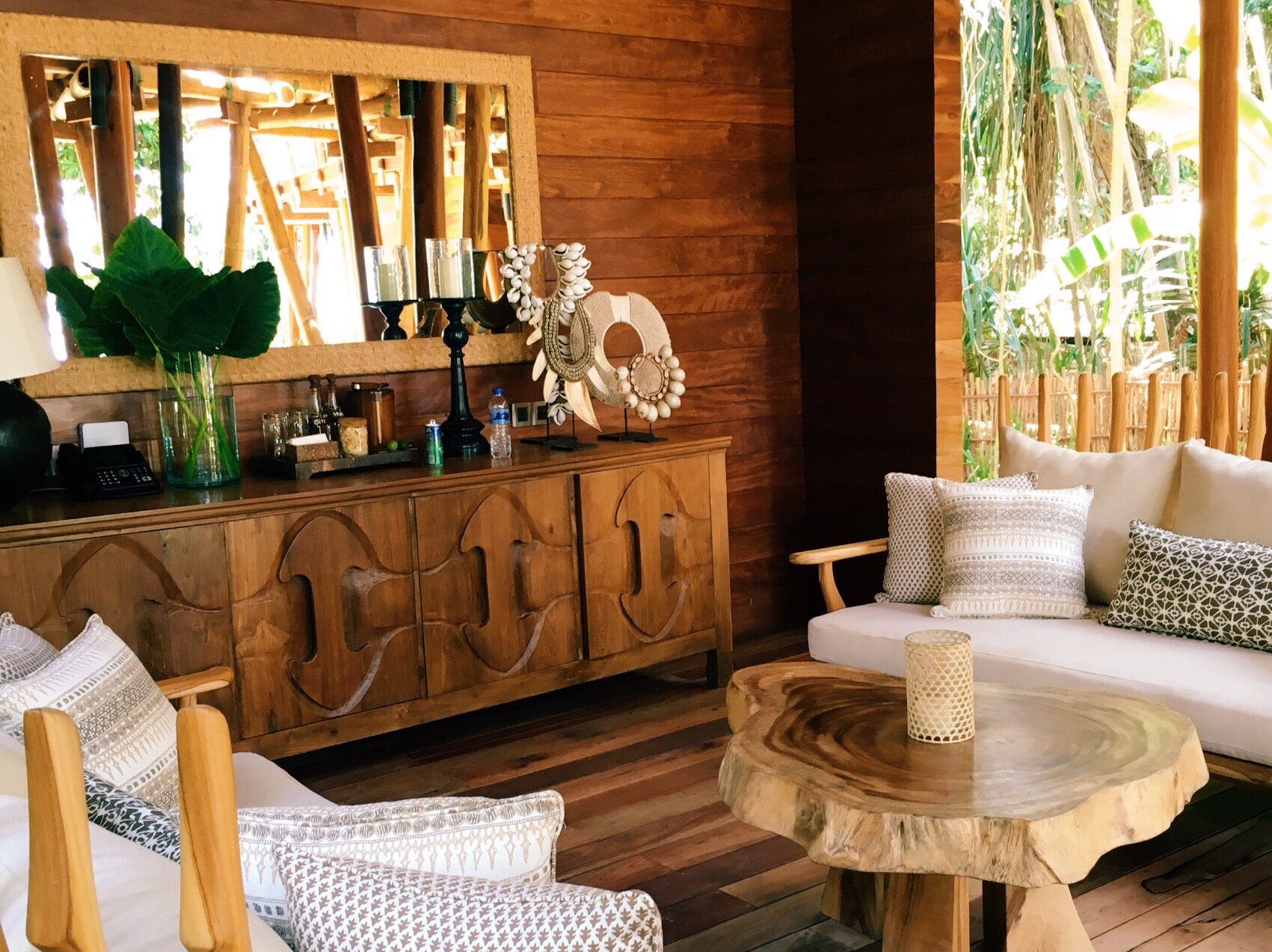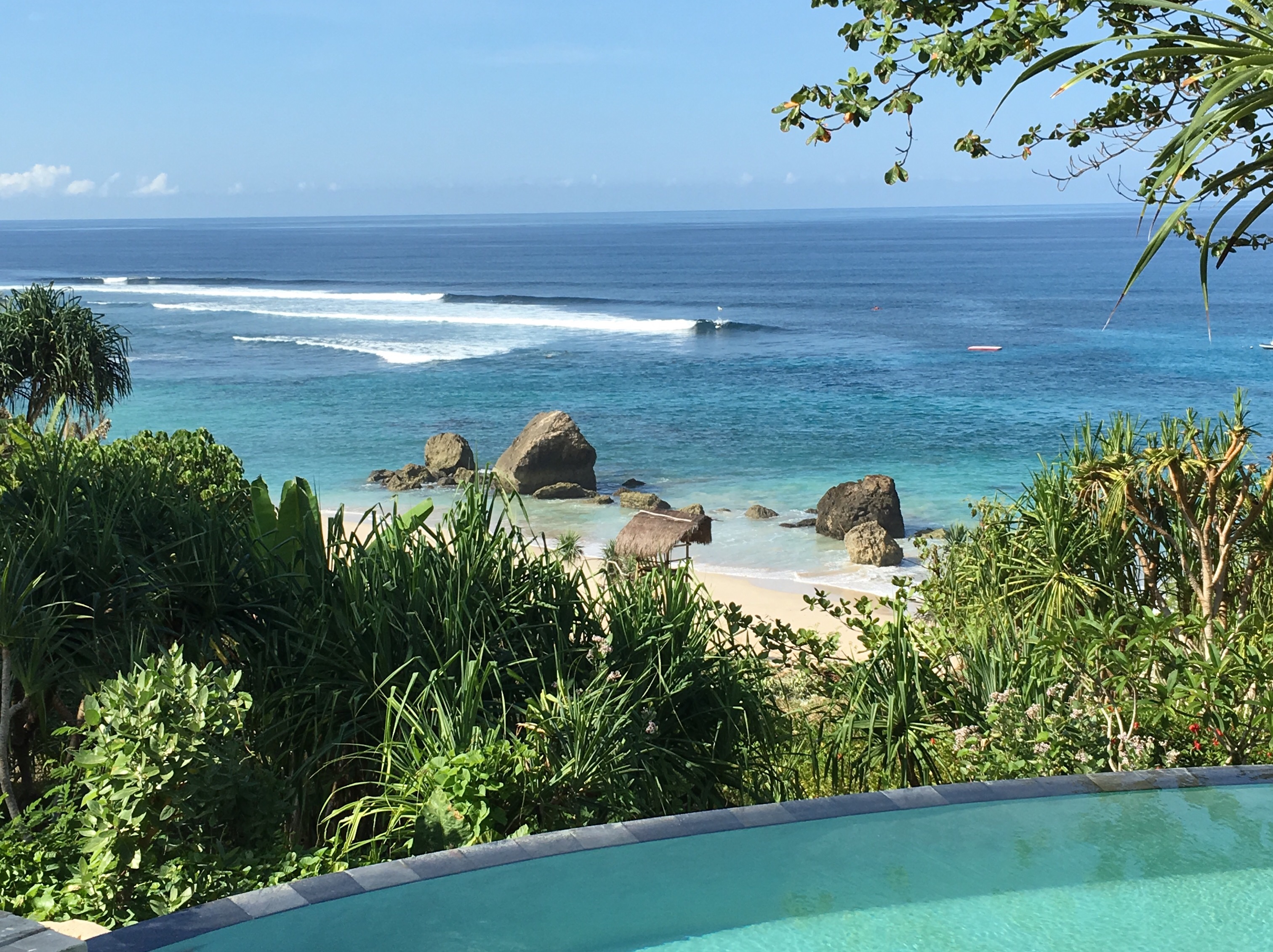Nihiwatu






Sumba. No Bintang t-shirts or braided hair here, no Rip Curl stores or girly bars. This is Indonesia’s tribal isle, where the traditional way of life (including subsistence living, malaria, tribal conflict, and shamanism) has perservered for far longer than its near neighbours. It is also extraordinarily beautiful and it’s no surprise that the jaded eye of tourism has focussed here. Several of the big ticket resort companies have purchased or earmarked land here, and a hospitality school is already in progress.
Nihiwatu, on the unspoilt south west coast of the island, has been getting a lot of press lately but in fact this piece of paradise has been operating as an under-the-radar surf resort for nearly 30 years thanks to the passion and vision of its original owners, Claude and Petra Graves. A recent investment boost from avid surfer and entrepreneur Chris Burch has seen millions flow into the resort, making it a village with five-star amenities, but one where Robinson Crusoe would feel right at home.
It is also one arm of the Sumba Foundation, which aims to eradicate malaria, provide basic health services and bring clean water, nutrition and education to the thousands of villagers who live here in abject poverty. In short, it is doing amazing things.
For the barefoot philanthropist, the rooms and villas are enormous and beautiful, and decorated in a rustic safari-chic style. There are open air bathrooms, handcarved signs and thatched roofs. There are a huge variety of activities on offer, from surfing the world class Occy’s Left (a max of ten surfers allowed at any one time), to trekking an hour and a half to a hidden waterfall that not even the locals know about. The owners also have another little piece of perfect coastline a 90 minute hike away with three open air bales, where you can spend the day under the healing hands of their therapists. Breakfast, lunch and dinner are of a high standard and are included daily. The beach is one of the most perfect I’ve ever seen (and I come from a land which has officially counted 10,685 beaches).
But when you consider that most supplies need to come an hour and a half by road from the airport over treacherous mountain passes, or by sea to a ferry port that is often not operating, it is astonishing that this level of comfort can be enjoyed at all.
The resort employs principally Sumbanese to give them and their families a living and is key to the continued success of the Sumba foundation. The staff are genuinely warm and friendly. They lack the polish of the big-name resorts, but seeing their wide smiles, you would not want it any other way.
The room rate is high. But this is so much more than just a tropical resort. The most special part of Nihiwatu is that is truly does seem at the edge of the world. On the drive here, we saw the ubiquitous dogs, chickens, cows and children weaving over the road – we also saw a man in full tribal wear with a machete slung across his back, taking a horse for a run, tied behind his motorbike. The local Sumbanese houses are painted in bright pastels: mauve, yellow, mint-green, blue and pink. From a distance they look like a scattering of dolly mixture over the bushland landscape. Close up, you can see that families live on largely open air raised platforms, with storage in the roof cones and animals living beneath. Monolithic shrines and tombs, some painted with Christian murals, pepper the roadside. And after an hour and a half, you find yourself in a sand-floored bar, looking at that beach.
It’s hard to put a price on this sense of isolation, of unspoilt paradise, of seeing a place where tourism is almost non-existent. That is what you are paying for and after a week here, it seems cheap at the price.
Nihiwatu’s motto is “On the Edge of Wildness” – and it is. One day we took a boat down the coast. We travelled for an hour past limestone cliffs, rock formations that would not look out of place along the Great Ocean Road, and mountains which had slid in to the sea. We did not see another living soul, let alone another boat. The beach we visited was a perfect arc of white sand. The water was clear and warm. There was good snorkelling at the point. The boys went out spearfishing to get some lunch for the barbecue. The rest of the world could have been obliterated and we would not know.
Crack open your piggy banks if you must but get here fast before the rest of the world does.
★
Truant Travel Design
Specialising in exquisite lodgings and creating personalised itineraries throughout Australia and the world, Truant Travel Design is a private travel design firm based in Australia.
